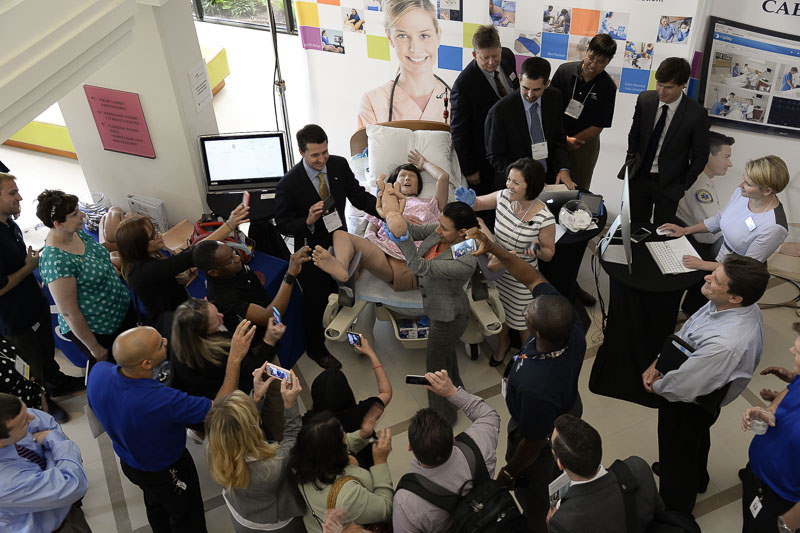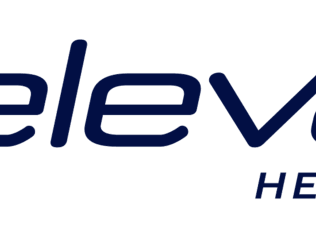CAE Healthcare HPSN World 2014 Keynote Address By Dr. JoDee Anderson & Other Recap Materials Now Online
Shown below is CAE Healthcare’s 2014 HPSN keynote address provided by Dr. JoDee Anderson, Associate Professor and the Medical Director of the Neonatal Intensive Care Unit at Oregon Health & Science University. Dr. Anderson delivered a compelling, multimedia keynote address about how simulation is altering team behavior in pediatrics. Also thanks to CAE, you can now visit their 2014 event recap page (linked below) to watch the conference opening by newly appointed president of CAE Healthcare, Dr. Robert Amyot, as well as download any of the presentation slides from the meeting!
About JoDee:
Sponsored Content:
Dr. JoDee Anderson completed her pediatric residency and neonatal-perinatal fellowship at Stanford University where she focused on the development of simulation-based curricula in neonatal resuscitation, pediatric advanced life support, ECMO crisis management, and crisis resource management behaviors. She serves as the Director of Pediatric Simulation Education at OHSU. She obtained a masters degree in education through University of Cincinnati as she worked to validate expert modeling as a strategy to improve skill acquisition in simulation. She serves as Chair of the Education Committee for the Society for Simulation in Healthcare; she was a member of the Board of Directors for the Oregon Simulation Alliance; and she was an investigator in the EXPRESS trial. She has more than 16 years of experience in simulation and she has developed interprofessional simulation curricula to improve the performance of interprofessional teams in high-risk environments. In 2011, she was appointed as the Medical Director for The S.T.A.B.L.E Simulation Program, an internationally renowned resuscitation-training program in neonatal care. She was also instrumental in the development of the Simulation Instructor DVD for The AAP Neonatal Resuscitation Program. Together with colleagues she developed and validated the Behavioral Assessment Tool (BAT) for simulation, a widely used and accepted instrument in simulation education and research. As a native Oregonian she enjoys all the outdoors have to offer; she spends her free time with her family skiing, camping, biking, and traveling.
About the HPSN2014 Keynote Address:
When a baby is born in distress, a medical team has only a few critical moments to revive the newborn to prevent permanent neurological damage, or even death. Dr. JoDee Anderson has devoted her career to improving outcomes in the most vulnerable newborns. Anderson is associate professor of neonatology at Oregon Health and Science University in Portland, Oregon, where she is also medical director of the hospital’s neonatal intensive care unit. As an advocate of inter-professional training for neonatal resuscitation teams, she has developed learning tools to improve team behaviors.
Sponsored Content:
At HPSN, Anderson delivered a compelling, multi-media keynote address about how simulation is altering team behavior in pediatrics. During her talk, she showed video of a real-life neonatal resuscitation. “It’s not well-coordinated, we don’t use the protocols very well, and there isn’t good teamwork,” Anderson says. “It’s a striking and emotional video, and I point out the ways the team isn’t working together.” Anderson learned the value of simulation during her internship at Stanford University Hospital. “My first experience with neonatal resuscitation was a simulation during my internship at the Stanford VA Simulation center.
I had a really hard case – meconium aspiration and asphyxiation.” Anderson found the simulation challenging, but she didn’t know how much it had impacted her learning until three days later. “I was on call at the county hospital and the exact same case came up. I knew what to do as an intern. It was amazing to me that this transfer of learning had happened, and I knew what to do for a real patient. That changed everything.”
Learn more at the HPSN 2014 Wrap Up Page
Lance Baily, BA, EMT-B, is the Founder / CEO of HealthySimulation.com, which he started in 2010 while serving as the Director of the Nevada System of Higher Education’s Clinical Simulation Center of Las Vegas. Lance also founded SimGHOSTS.org, the world’s only non-profit organization dedicated to supporting professionals operating healthcare simulation technologies. His co-edited Book: “Comprehensive Healthcare Simulation: Operations, Technology, and Innovative Practice” is cited as a key source for professional certification in the industry. Lance’s background also includes serving as a Simulation Technology Specialist for the LA Community College District, EMS fire fighting, Hollywood movie production, rescue diving, and global travel. He and his wife live with their two brilliant daughters and one crazy dachshund in Las Vegas, Nevada.
Sponsored Content:






















